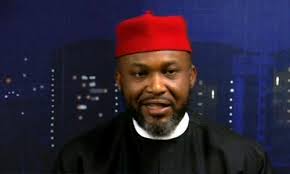
The Nigerian Government has pledged to expedite efforts to restore electricity across the northern region, which has been grappling with significant blackouts affecting 17 states.
Minister of Power, Adebayo Adelabu, announced that full restoration is expected within 14 days, specifically by November 12, 2024. He noted that partial restoration would occur within three days.
This assurance follows a series of power outages caused by the vandalism of the Shiroro-Kaduna transmission line, a critical source of electricity for the northern states. The ongoing repairs have been hampered by security challenges, including threats from bandits, which have forced engineers to operate under strict conditions.
The Transmission Company of Nigeria (TCN) has indicated that repairs to the damaged transmission line would be completed within five days (by November 3, 2024), and alternative measures are being implemented to supply up to 400 megawatts to certain areas within the next 24 hours.
The worst-affected states include Kaduna, Kano, Jigawa, Gombe, and Katsina, which have experienced two weeks of total blackout. Governor’s forums have called for diversification of energy sources to address persistent power shortages.
President Bola Tinubu has ordered TCN to accelerate repair work and directed the National Security Adviser to provide additional security support for the repair teams. TCN’s Managing Director, Sule Abdulaziz, reported that they are collaborating with local security forces to ensure the safety of engineers and to protect infrastructure from vandalism.
Adelabu emphasized the need for stricter laws against vandalism, advocating for a ban on the sale of scrap metals that often fuels such criminal activities. He suggested that vandalism of electricity infrastructure should be classified as a capital offense, proposing harsher penalties to deter future incidents.
In response to concerns about the recent improvements in electricity supply, Adelabu clarified that these cannot solely be attributed to seasonal rainfall, as only 25% of Nigeria’s power generation comes from hydro sources. The majority, about 75%, is generated from gas-fired thermal plants. He noted the opening of the Zungeru Power Plant, which, while not operating at full capacity, contributes to the overall improvement in supply.
As the government works to restore power, many in the northern region remain hopeful yet cautious, given the history of infrastructural challenges and security issues impacting reliable electricity access.





